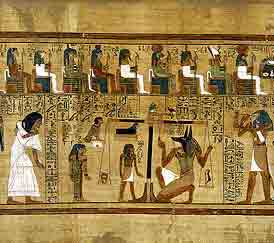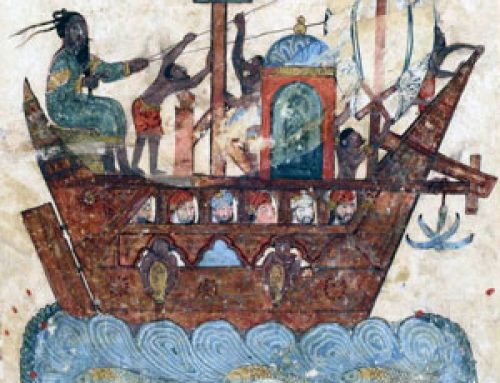
Anubis weighing the souls of the dead
The Egyptians were among the first people to believe that if you were good during your life, you would have a good time after you died. But if you were bad while you were alive, you would go to a bad place after you died where you would suffer for it.
In Egyptian tomb paintings from as early as 2500 BC, in the Old Kingdom, we find pictures of the weighing of the soul. Egyptians thought this weighing happened after you died.
According to the Egyptians, after you died the god Anubis would put your soul (it looks like a tiny naked person in some pictures, or a heart) on one side of a giant scale and he would put a feather on the other side. Then Thoth would decide where you should go. The more bad things you had done in your life, the heavier your soul would be. If it was heavier than the feather, then you would have to go to the bad place. But if your soul was lighter than the feather, then you could go to the good place.
Learn by doing: Egyptian afterlife project
More about Anubis
And more about Egyptian mummies
More about canopic jars
More about African religion
Bibliography and further reading about Egyptian religion:
Gods and Goddesses of Ancient Egypt, by Leonard Fisher (1999). For younger kids.
Tales of Ancient Egypt, by Roger Lancelyn Green
Make This Egyptian Mummy, by Iain Ashman (2002). A project for kids.
Pyramids: 50 Hands-On Activities to Experience Ancient Egypt, by Avery Hart and others (1997).
Religion in Ancient Egypt: Gods, Myths, and Personal Practice, by John Baines, David Silverman, and Leonard Lesko (1991). Pretty hard going, but it will tell you everything you need to know about Egyptian religion.


